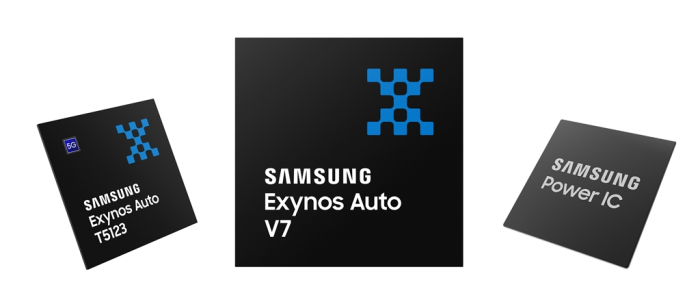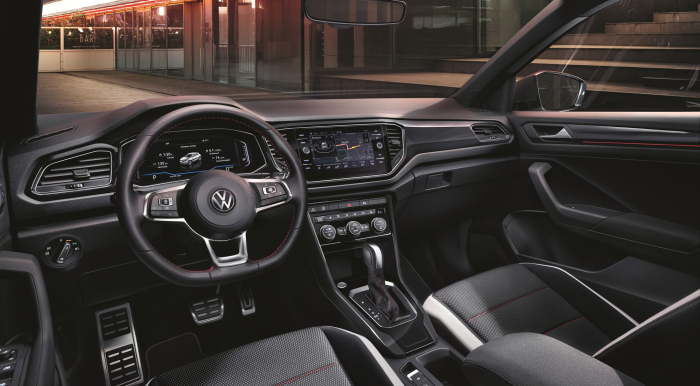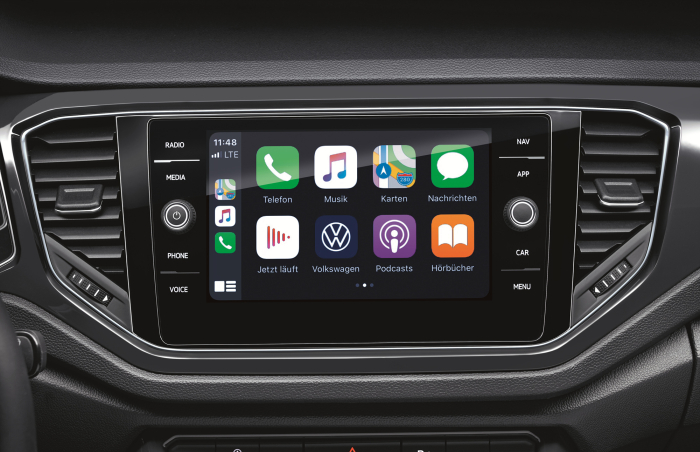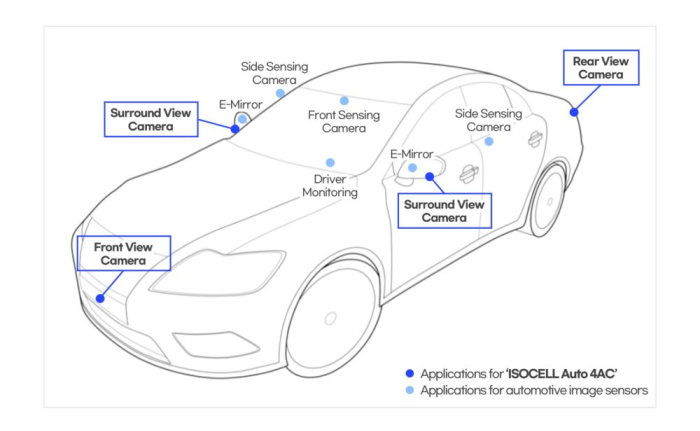Auto chips
Samsung’s new auto chip mounted in Volkswagen’s infotainment system
Samsung has unveiled three advanced auto chips as carmakers increasingly adopt autonomous and in-vehicle infotainment systems
By Nov 30, 2021 (Gmt+09:00)
2
Min read
Most Read
LG Chem to sell water filter business to Glenwood PE for $692 million


Kyobo Life poised to buy Japan’s SBI Group-owned savings bank


KT&G eyes overseas M&A after rejecting activist fund's offer


StockX in merger talks with Naver’s online reseller Kream


Mirae Asset to be named Korea Post’s core real estate fund operator



Samsung Electronics Co. is supplying one of its latest advanced chips to Volkswagen AG for the German carmaker’s in-vehicle infotainment system, as the South Korean tech giant seeks to expand its presence in the fast-growing smart and connected car component market.
The Exynos Auto V7, already being produced in large quantities, is used in Volkswagen’s latest In Car Application Server (ICAS) 3.1, developed by Korea’s LG Electronics Inc., Samsung said in a statement on Tuesday.
Samsung didn’t provide details such as the volume and value of the deal.
The advanced automotive chip is the latest addition to Samsung’s automotive processor lineup.
Samsung said its Exynos Auto V7 supports four displays and 12 camera inputs, using up to 32 gigabytes (GB) of LPDDR4x memory capacity, and offers strong data protection through an isolated security processor for crypto operation.
The V7 chip is also equipped with a neural processing unit (NPU) for services such as virtual assistance that can process visual and audio data for face, speech and gesture recognition features.

SMARTER, MORE CONNECTED
Samsung has strengthened its high-tech chip lineup while LG has increased the production of its sophisticated components as global automakers are rapidly adopting autonomous and in-vehicle infotainment systems, which in turn raise the demand for advanced auto chips.
A self-driving car usually requires at least 2,000 chips compared with about 300 chips per vehicle for the current human driving models.
According to market researcher IHS Markit, the global auto chip market is forecast to grow at an average annual rate of 7% to $67.6 billion by 2026 from $45 billion early this year, with such chip demand projected to rise to 208.3 billion units by 2027 from 132.5 billion units this year.
“Smarter and more connected automotive technologies for enriched in-vehicle experiences including entertainment, safety and comfort are becoming critical features on the road,” said Park Jae-hong, executive vice president of Samsung’s System LSI Custom SOC business.

SAMSUNG’S 3 NEW LOGIC SOLUTIONS
Samsung has been supplying auto chips to various automakers.
In 2017, it supplied its Exynos Auto 8890 processor chip to Germany’s Audi AG. In 2019, Samsung also began supplying the German luxury car brand with the Exynos Auto V9 for its infotainment system.
In July of this year, Samsung unveiled the ISOCELL Auto 4AC, its first ISOCELL image sensor tailored for automotive applications. The chip is used in Hyundai Motor Co.’s vehicles.
On Tuesday, Samsung also unveiled two other auto chips – the Exynos Auto T5123 for 5G connectivity, and the S2VPS01, a power management integrated circuit (PMIC) chip.
The Exynos Auto T5123 is the industry’s first 5G connectivity solution for automobiles, according to Samsung.

It delivers information to the vehicle in real-time via high-speed download of up to 5.1 gigabits per second (Gbps), allowing passengers to enjoy a host of services such as high-definition content streaming and video calls on the go, it said.
The S2VPS01 regulates and rectifies the flow of electrical power, enabling reliable in-vehicle infotainment system performance, Samsung said.
Write to Shin-Young Park at nyusos@hankyung.com
In-Soo Nam edited this article.
More to Read
-
 Laptop chipsetsSamsung to jump into laptop processor market with Exynos chip in H2
Laptop chipsetsSamsung to jump into laptop processor market with Exynos chip in H2May 09, 2021 (Gmt+09:00)
2 Min read -
 Auto componentsLG Electronics eyes growth potential in US auto parts market
Auto componentsLG Electronics eyes growth potential in US auto parts marketMar 09, 2021 (Gmt+09:00)
3 Min read
Comment 0
LOG IN


